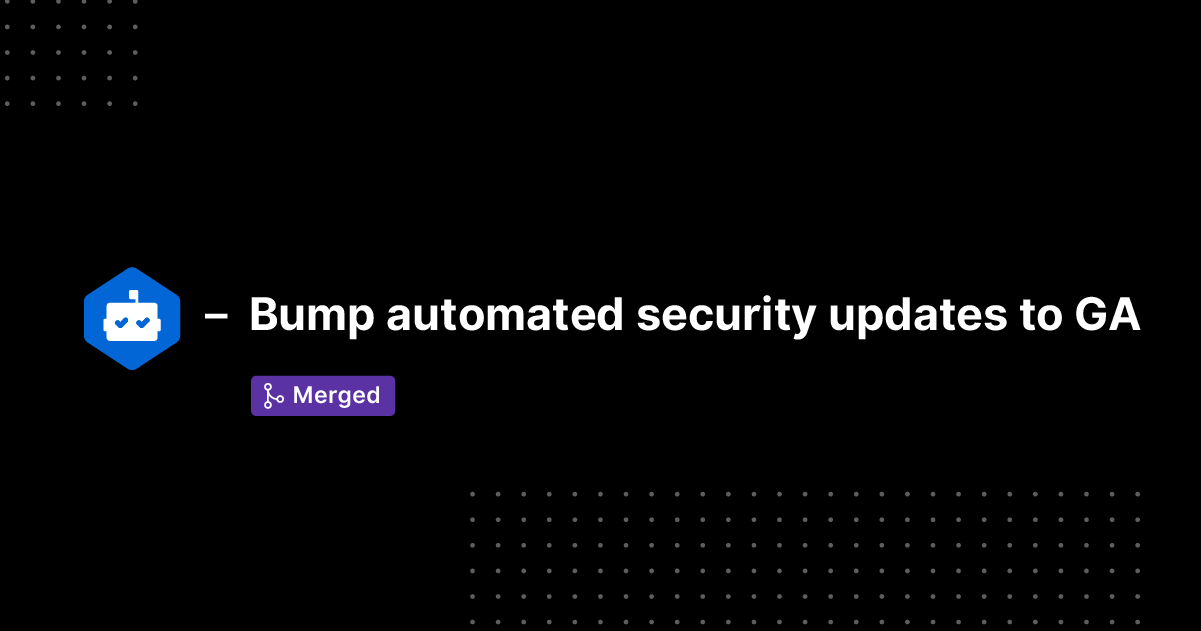Improvement
Automated security updates, now generally available

Automated security updates (formerly Dependabot and automated security fixes) are now generally available in all public repositories on GitHub. After a popular debut at Satellite 2019, more than 3.5 million active repositories have the feature enabled and receive automated pull requests that update them to the nearest non-vulnerable dependency versions. Thanks to all of our beta testers and Dependabot users for your feedback and support.